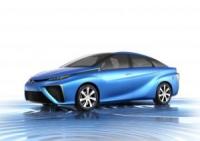DETROIT (AP) – Big US recalls by General Motors and Toyota have put the auto industry on a record pace as companies try to avoid bad publicity and punishment from an increasingly aggressive government.
On Wednesday, Toyota announced it was recalling nearly 1.8 million vehicles in the US to fix a spate of problems, including air bags that might not inflate. It’s part of a worldwide recall of 6.4 million cars and trucks.
So far this year, automakers have recalled about nine million vehicles in the US. If that pace continues, the nation would break the record of 30.8 million recalled vehicles set in 2004.
Most of the recalls are from Toyota and General Motors, two automakers that are under government scrutiny and facing bad publicity and allegations that they concealed safety issues.
Toyota’s latest recalls were announced before the company even developed specific repairs. They come two weeks after the Justice Department skewered the Japanese automaker for covering up problems that caused unintended acceleration in some cars starting in 2009. Toyota agreed to pay $1.2 billion to settle that case, but federal prosecutors can resurrect a wire fraud charge if the company fails to comply with the terms of the settlement.
Toyota’s actions come as rival GM recalls 2.6 million small cars for defective ignition switches the company links to at least 13 deaths. Of those, 2.2 million are in the US. As that crisis unfolded, GM announced recalls of another 3.4 million US vehicles.
Business ( Article MRec ), pagematch: 1, sectionmatch: 1
GM is facing a Justice Department investigation, and last week its new CEO was grilled by Congress over its handling of the ignition recalls. It also faces fines of $7,000 per day for missing a deadline to answer questions from the National Highway Traffic Safety Administration.
Clarence Ditlow, executive director of the nonprofit Center for Auto Safety, said automakers historically have been quick to fix safety problems when faced with government investigations and bad publicity.
“The manufacturers as a whole look through their inventory of defective vehicles and recall some of the ones that they had passed over before,” he said.
After highly publicized cases in the past, such as Toyota’s unintended acceleration problems and Ford’s trouble with Explorers and Firestone tires in the late 1990s, automakers at first quickly issued recalls. But recalls dropped off as the bad publicity faded, Ditlow said.
But this time may be different because of the Justice Department’s investigation of Toyota and the prospect of criminal charges against GM and some of its employees in what lawmakers have called a cover-up of the ignition switch problem.
“That can be a real game-changer,” Ditlow said. “There’s nothing that changes corporate behavior as much as criminal prosecutions.”
Jessica Caldwell, senior analyst for the Edmunds.com auto website, said things changed when NHTSA got more aggressive with fines and enforcement against Toyota in 2009 and 2010.
![]()
